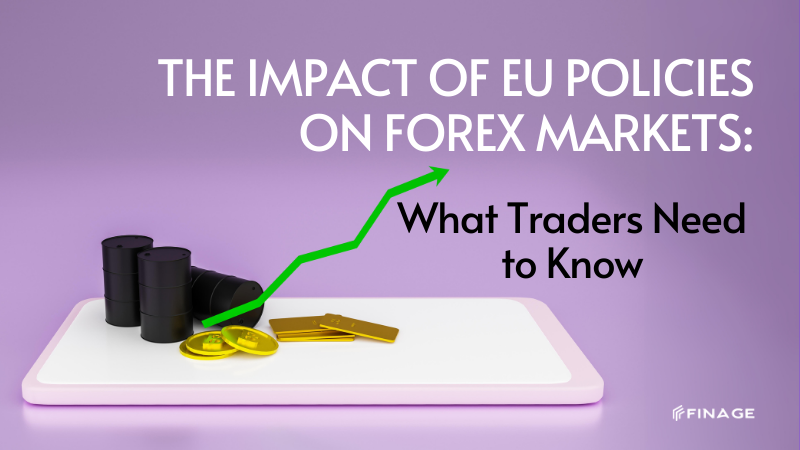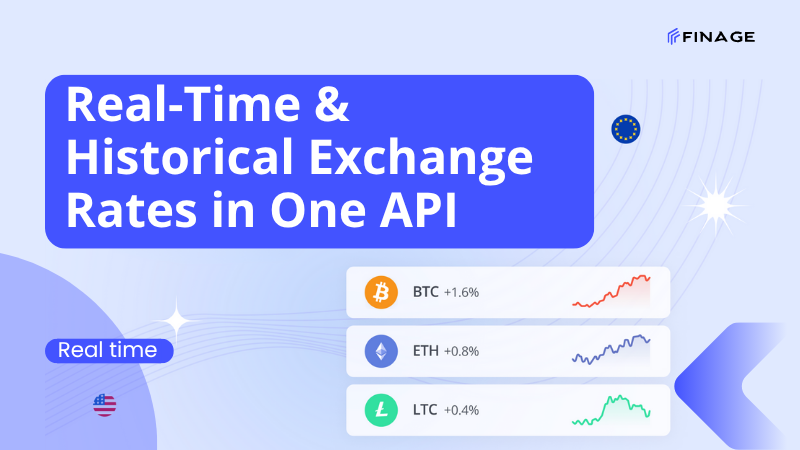The Impact of EU Policies on Forex Markets: What Traders Need to Know
4 min read • May 4, 2024

Introduction
The European Union (EU) plays a crucial role as a major global economic force, and its internal policies have a profound influence on the forex markets. Changes in financial regulations, monetary policies, and even political events within the EU can send shockwaves across the global financial landscape, altering currency values and necessitating adjustments in trading strategies. This blog post delves into the recent shifts in EU policies, examining their direct impacts on the forex markets and providing essential insights for traders to navigate these changes effectively.
As the EU navigates through these policy adjustments, the ripple effects on forex markets are significant and multifaceted. Traders must stay informed and adaptable to manage these impacts successfully. Understanding the interplay between EU policies and market dynamics is crucial for forex traders aiming to leverage these changes to their advantage. By keeping abreast of EU monetary policies, regulatory changes, and political developments, traders can better anticipate market movements and adjust their strategies accordingly, enhancing their ability to make informed trading decisions in a complex and ever-evolving financial environment.
Understanding the Influence of EU Monetary Policies
Monetary policy decisions by the European Central Bank (ECB) are among the primary drivers of forex market fluctuations in Europe. Interest rate decisions, quantitative easing measures, and forward guidance can alter the investment landscape significantly. When the ECB adjusts rates, it directly affects the euro's strength against other currencies, creating opportunities and risks for forex traders. Monitoring ECB announcements and the economic indicators that influence these decisions is crucial for forex market participants.
Fiscal Policies and the Forex Market
Beyond monetary policy, the EU's fiscal policies, including budget decisions and fiscal consolidation measures among member states, also sway the forex markets. Policies aimed at reducing deficits or managing public debt levels can impact investor confidence and economic stability within the region, thereby influencing the euro's valuation. Traders need to stay informed about these policies to predict potential market movements accurately.
The Role of Political Stability in the EU
Political events and stability within the EU can also lead to significant volatility in forex markets. Elections, referendums, and policy changes can alter economic expectations and stability rapidly. For instance, Brexit had a profound impact on the euro as well as the British pound, highlighting how political uncertainty can lead to increased volatility and trading opportunities in the forex markets.
Trade Relations and Their Economic Impacts
The EU's trade policies, including trade agreements, tariffs, and trade disputes, also play a critical role in shaping forex market dynamics. These policies influence the economic outlook for the region and affect the euro's strength. Forex traders must understand the broader geopolitical landscape and how changes in trade relationships with key partners like the USA, China, and the UK may affect the EU's economic performance and, consequently, forex trends.
Regulatory Changes and Compliance
Regulatory changes within the EU, such as those about financial markets and cross-border capital flows, can impact forex trading. New regulations can alter the market by changing the rules under which banks and financial services operate, affecting liquidity and volatility in the forex markets. Traders need to be aware of these regulations to manage risks and align their trading strategies with the new regulatory environment.
Conclusion: Staying Ahead in a Dynamic Environment
For forex traders, grasping the nuances of EU policies is vital for developing effective trading strategies. The EU's considerable impact on global economic dynamics can profoundly influence forex markets, presenting both significant risks and opportunities for traders. Those who remain well-informed about these shifts and are quick to adapt can manage these risks more effectively and exploit emerging opportunities. This proactive approach is essential in a market as interconnected and influenced by policy changes as the forex market, where EU policy shifts can have cascading effects worldwide.
Staying ahead in forex trading under the influence of EU policies means maintaining vigilance and being responsive to the subtle nuances of how these policies impact market movements. Traders need to continuously monitor developments in the EU's economic, political, and regulatory landscapes, which are pivotal in shaping trading environments. A deep understanding of these factors allows traders to anticipate market trends and adjust their strategies in a timely manner, enhancing their ability to navigate the complexities of forex trading effectively.
As the EU continues to evolve its economic policies and confronts various political and regulatory challenges, forex traders must be prepared for a dynamic trading environment. Adaptability and informed decision-making are key to succeeding in this space. By staying updated with EU developments and understanding their implications, traders can position themselves to respond adeptly to market changes, safeguarding their investments while capitalizing on new opportunities that arise from the ever-changing policy landscape.
You can get your Real-Time and Historical Forex Data with a free Fx Data API key.
Build with us today!
Claim Your Free API Key Today
Access stock, forex and crypto market data with a free API key—no credit card required.

Stay Informed, Stay Ahead
Finage Blog: Data-Driven Insights & Ideas
Discover company news, announcements, updates, guides and more


